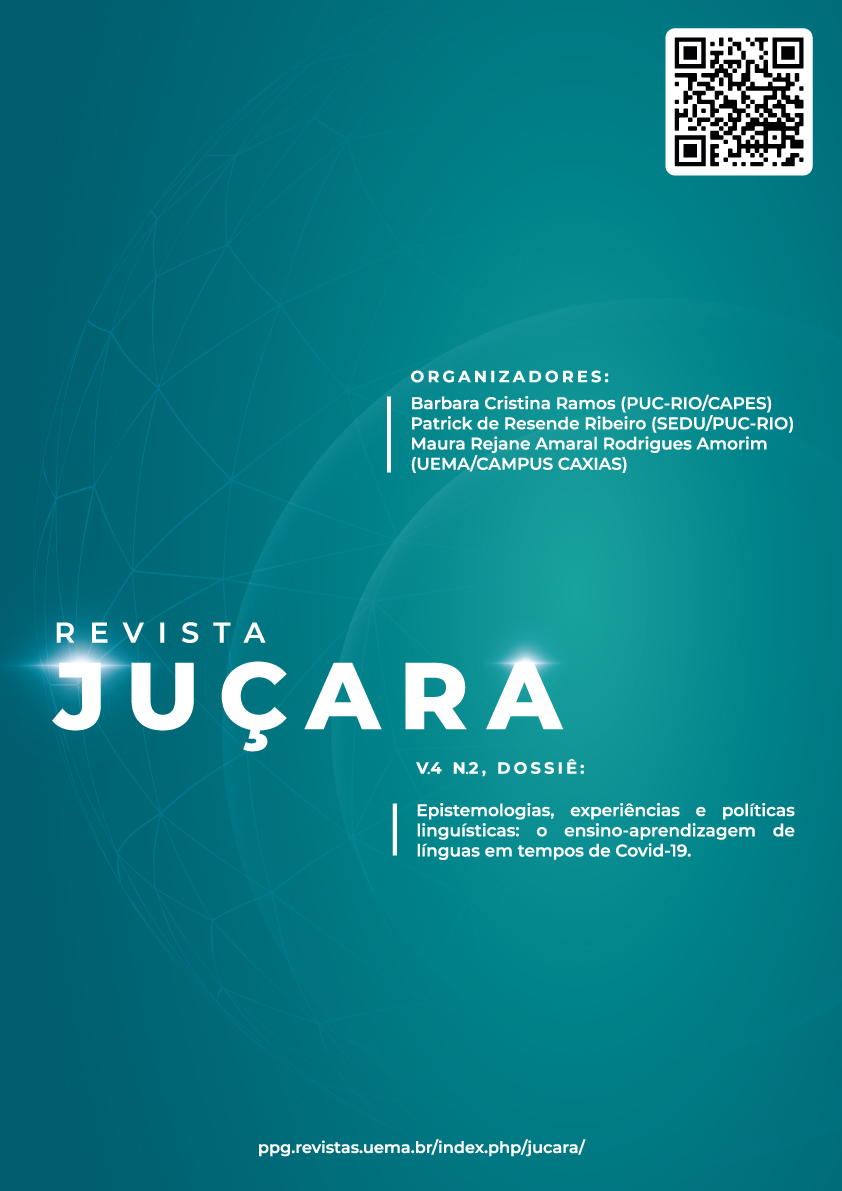THE COMMUNICATION IN DIGITAL ERA
SOCIAL NETWORKS SLANGS
DOI:
https://doi.org/10.18817/rlj.v4i02.2270Abstract
ABSTRACT: This work had as general objective to analyze the main slangs that circulate in digital context, mainly in the social networks, and its importance for the communication in this environment. As specific objectives, we seek to: 1) identify the main slangs that circulate on social networks Facebook and WhatsApp; 2) verify the importance of knowledge of this specific vocabulary for communication in these networks and 3) observe whether these slangs can be classified as belonging to groups or common. As theoretical bases, we based our analysis on authors such as Galli (2005) and Marcuschi (2005), about the Digital Era and the communication that emerges in it, in addition to Preti (1984; 2000; 2004) about slang, and Moreira and Januário (2014) about social media. Methodologically, this was a descriptive-interpretative research, with a qualitative approach, whose corpus of analysis was composed of slangs present in posts and conversations on the aforementioned social networks, with the concealment of user names, as well as an online questionnaire. The results showed that knowledge of the slangs that circulate on social networks is extremely important for interaction in these environments. With this study, we established the slang as an important component of verbal interaction in social networks, distancing itself from a prescriptive and normative perspective regarding this use, but showing it as an essential linguistic element for interaction in these contexts.
KEYWORDS: Communication Mediated by Computer. Social Networks. Slangs. Interaction.
Downloads
Published
How to Cite
Issue
Section
License
Copyright (c) 2021 Carlos Roberto Gonçalves da Silva, Luciene Maria Patriota

This work is licensed under a Creative Commons Attribution 4.0 International License.
A submissão de originais para a Revista de Letras Juçara implica na transferência, pelos autores, dos direitos de publicação. Os direitos autorais para os artigos publicados nesta revista são do autor, com direitos da revista sobre a primeira publicação. Os autores somente poderão utilizar os mesmos resultados em outras publicações indicando claramente a Revista de Letras Juçara como o meio da publicação original.


